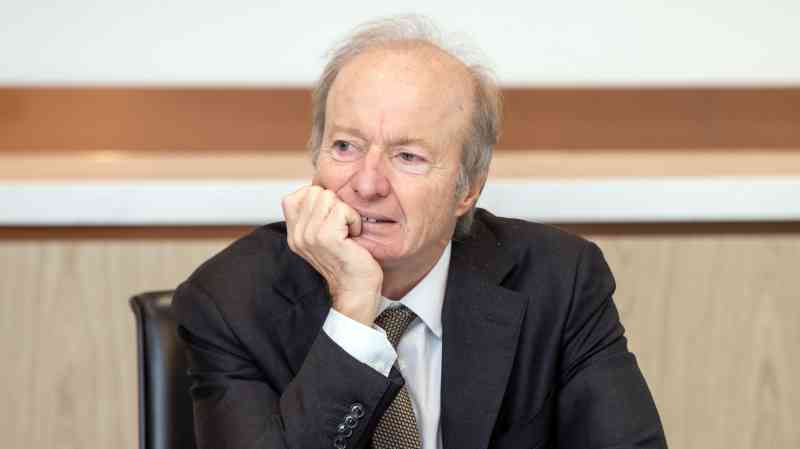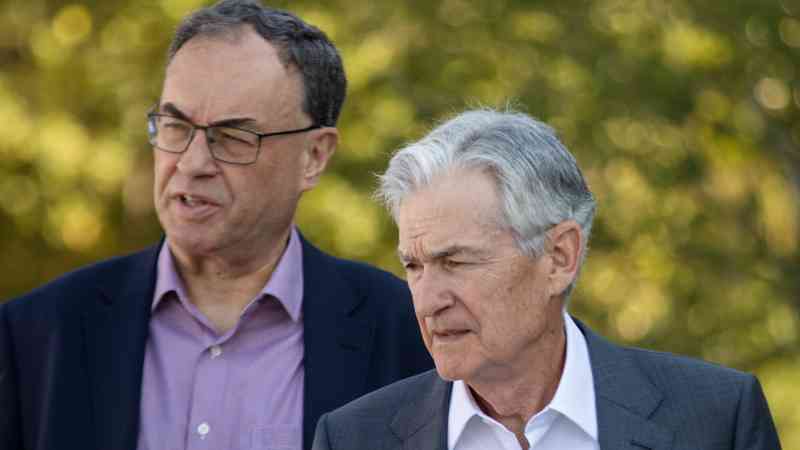October energy price cap: bills to rise 10% this autumn
Energy bills for most households in Britain will rise by an average of £12 a month to £1,717 a year from October 1, putting millions of people under renewed pressure.
Ofgem raised the price cap by 10 per cent, from £1,568 for the present quarter, in response to a rebound in wholesale gas prices amid mounting global political turmoil and extreme weather events.
It is the first time that the energy watchdog has raised the price cap since January last year, when it hit a record high of an annual £4,279. The outbreak of war in Ukraine caused energy prices to soar and pushed the government to subsidise bills, limiting bills for a typical household to £2,500 a year.
Britain has become more reliant on imports of American liquefied gas in the wake of the Russian invasion of Ukraine, which also has contributed towards wholesale gas prices becoming more volatile.
Energy bills are set to rise by another £45 to £1,762 from January, according to forecasts from Cornwall Insight, a consultancy.
The increase in prices this winter will put renewed pressure on millions of Britons who have struggled to pay their bills as energy costs have risen sharply. Bad debts, which are unlikely to be recovered, have risen to a record £3.3 billion, according to the latest figures from the energy watchdog.
“We know that this rise in the price cap is going to be extremely difficult for many households,” Jonathan Brearley, Ofgem’s chief executive, said. “Anyone who is struggling to pay their bill should make sure they have access to all the benefits they are entitled to, particularly pension credit, and should contact their energy company for further help and support.”
The regulator also has set out plans to reduce standing charges, the fixed costs on bills that cover getting energy to households, which could include moving between £20 and £100 of the annual cost of the standing charge to the unit rate, the price paid for every unit of energy used. However, it stopped short of recommending abolishing the standing charge altogether, a move that it said would increase energy bills by about 10 per cent for about half a million low-income households with high energy usage.
Ofgem announced a detailed review of the cap this year that would make significant changes to the way it was calculated, in particular to the daily standing charge, which costs a typical consumer several hundred pounds a year even before any gas or electricity is used. The price cap set by Ofgem for the October quarter assumes a daily standing charge of 60.99p for electricity and 31.66p for gas, up from 60.12p and 31.41p, respectively, in the previous quarter.
• Compare energy prices: Cheapest energy suppliers in 2024
About ten million pensioners were already set to feel the pinch in the colder months after the chancellor scrapped the winter fuel allowance for those not in receipt of pension credit or some other means-tested benefits.
European wholesale gas prices are close to their highest level since February at €36.7 per megawatt/hour, having risen from a 30-month low of €24 per MWh. However, that is still about 89 per cent below the peak of August 2022.
Jess Ralston, head of energy and the Energy and Climate Intelligence Unit, a think tank, said that high gas prices and Britain’s dependence on the fuel for home heating and electricity generation meant that bills this winter would be on average 50 per cent higher than they were before the energy crisis.
“A lack of progress on energy efficiency and heat pumps means that our reliance on gas hasn’t fallen much in recent years, despite the volatility in the international markets forcing bills to skyrocket,” she said.
The energy price cap, introduced by the government in 2019, limits the price that suppliers can charge households for each unit of gas and electricity on standard tariffs. It was designed to protect consumers and is updated regularly, based on the regulator’s assessment of the costs that an efficient supplier should incur.
“This will be deeply worrying news for many families,” Ed Miliband, the energy secretary, said. “The rise in the price cap is a direct result of the failed energy policy we inherited, which has left our country at the mercy of international gas markets controlled by dictators.
“The only solution to get bills down and greater energy independence is the government’s mission for clean, homegrown power. That’s why we have hit the ground running, lifting the onshore wind ban, consenting unprecedented amounts of solar power and setting the largest-ever budget for our renewables auction.
“We will also do everything in our power to protect billpayers, including by reforming the regulator to make it a strong consumer champion, working to make standing charges fairer, and a proper warm homes plan to save families money.”
Claire Coutinho, the shadow energy secretary, accused Labour of not being honest about its plans. “Instead of prioritising cheap energy, the new Labour government are pursuing Ed Miliband’s reckless net zero targets with no thoughts to the costs,” she said. “Far from their promise of saving families £300 off their energy bills, one of their first acts in office is to remove the winter fuel payment from ten million pensioners this winter.
“Because they weren’t honest about their plans, that means millions of pensioners will have made no plans to deal with higher energy bills this winter.”
The Liberal Democrats said that the government had been forced to take “urgent action” to address the “Conservative Party’s legacy”.
Emma Pinchbeck, chief executive of Energy UK, the industry trade body, said: “An increase ahead of winter will be worrying news for many customers and an unwelcome reminder of how global factors can push up the price of fossil fuels, increase the cost of energy and ultimately hit customer bills.
“With energy debt at record levels, it is clear how many customers are struggling even before this increase. Suppliers will continue to do all they can by offering a range of financial and other support and we would always encourage customers in difficulty to get in touch and see what help is available.”




Post Comment